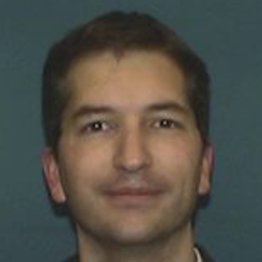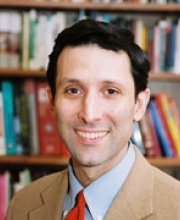Different faculty are also associated with the CCE in serving in collaborative and other roles.
 |
Scott Carter, PhD, is an Assistant Professor of Biostatistics at the Harvard T.H. Chan School of Public Health and of Biostatistics and Computational Biology at the Dana-Farber Cancer Institute. He also is an Assistant Professor in the Joint center for cancer precision medicine at the Dana-Farber Cancer Institute and an Associate member of the Cancer program at the Broad Institute of MIT and Harvard. He works closely with Boston area physicians to design and execute studies of cancer initiation, drug resistance, and metastasis using genomics technology applied to cancer-tissue specimens collected at various stages of disease progression. Dr. Carter has developed several novel computational methods in order to analyze these datasets and make inferences about clonal evolution underlying cancer progression. He has also developed software tools that are significantly increasing the impact of his work by making those methods available to the broader research community. These tools include HAPSEG, ABSOLUTE, CapSeg, Allelic CapSeg, and Phylogic.
|
 |
Benjamin Ebert, MD, PhD, is a Professor of Medicine at Harvard Medical School, an Institute Member of the Broad Institute, and Leader of the Leukemia Program for the Dana-Farber/Harvard Cancer Center. The primary focus of the Ebert laboratory is the biology and treatment of clonal hematopoiesis and myeloid malignancies. Our genetic studies have led to the characterization of clonal hematopoiesis of indeterminate potential (CHIP) and the identification of mutations in MDS that predict overall survival, outcome following bone marrow transplantation, malignancies to validate candidate therapies. Studies of the mechanism of action of lenalidomide, a drug with efficacy in MDS, revealed that lenalidomide and related compounds act by modulating the function of an E3 ubiquitin ligase, resulting in the drug-induced degradation of key therapeutic targets in hematologic malignancies.
|
 |
Rafael Irizarry, PhD, is a Professor in Biostatistics at the Harvard T.H. Chan School of Public Health and of Biostatistics and Computational Biology at the Dana-Farber Cancer Institute. His work has focused on Genomics and Computational Biology problems. In particular, he has worked on the analysis and signal processing of microarray, next-generation sequencing, and genomic data. He is currently interested in leveraging his knowledge in translational work, e.g. developing diagnostic tools and discovering biomarkers. Professor Irizarry also develops open source software implementing his statistical methodology. His software tools are widely used and he is one of the leaders and founders of the Bioconductor Project, an open source and open development software project for the analysis of genomic data. Bioconductor provides one of the most widely used software tools for the analysis of microarray data. Professor Irizarry has developed several online courses on data analysis that are offered by HarvardX and which have been completed by thousands of students.
|
 |
Cheng-Zhong Zhang, PhD, is an Assistant Professor of Biomedical Informatics at the Dana-Farber Cancer Institute. He obtained a Ph.D. in Chemical Engineering with a minor in Physics from Caltech. He received postdoctoral training in single-molecule biophysics in Timothy Springer’s laboratory at Harvard Medical School and subsequently worked on single-cell genomics and cancer biology in Matthew Meyerson’s laboratory at the Broad Institute of Harvard and MIT and at Dana-Farber Cancer Institute. He combines single-cell genomic analysis and cell biology to study genome evolution and phenotypic variation. Currently he focuses on the mechanisms and the transcriptional consequences of chromosomal abnormalities, such as rearrangement and aneuploidy, and how such events may promote tumor development.
|
